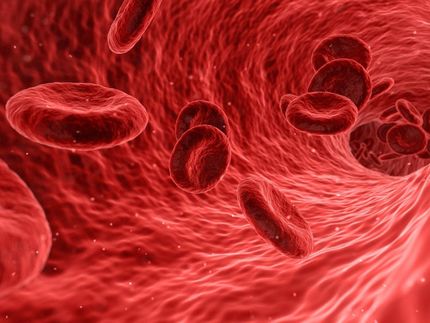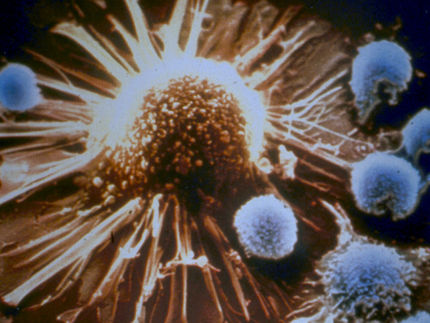Cancer-fighting gene therapy
Technology transfer project at the MDC
The Max Delbrück Center for Molecular Medicine (MDC), part of the Helmholtz Association, has announced a cooperation project between two MDC research groups and three industry partners: the ‘Max Delbrück Center Cell Engineering Lab’ (MD-CEL). Their joint goal is to develop a cell-based gene therapy for cancer.
‘This is a therapy concept that could make completely new treatment possibilities available to cancer patients,’ says Dr Michael Karle, Technology Manager at Ascenion for the MDC. ‘But precisely because the approach is so new, there are still many challenges on the road to clinical application. To master these we need partners with expertise and experience in all the relevant fields – from basic science to production and clinical development. MD-CEL brings exactly these partners together at a very early developmental phase. This is the best strategy to effectively advance the approach and to realize its therapeutic potential.’
The Helmholtz Association supports this transfer process, and is establishing a ‘Helmholtz Innovation Lab’ at the MDC. In addition, research and development will be co-financed by the industry partners. Ascenion has supported the MDC intensively during conception, applications, and acquisition of industry partners.
The MD-CEL partners include the MDC research groups under Dr Zsuzsanna Izsvák and Prof. Wolfgang Uckert, together with Miltenyi Biotec GmbH, PlasmidFactory GmbH & Co. KG and Formula Pharmaceuticals Inc.
Zsuzsanna Izsvák uses special, non-viral vectors, so-called transposons - in particular the ‘Sleeping Beauty’ transposon - to deliver and integrate genes into target cells. Wolfgang Uckert, professor at the Humboldt Universität zu Berlin, reprograms the T cells of the immune system to detect and eliminate tumour cells. The two groups are already working together with other groups from the MDC and The University of Chicago on reprogramming T cells for tumour therapy. Compared to the widely used retrovirus-based gene delivery technique, this new approach is technically much simpler, cheaper and faster.
The industry partners are contributing their expertise and experience in the development of biotechnological and biomedical tools, reagents and therapies.
Together, the MD-CEL partners aim to develop T cell reprogramming for clinical use. It is anticipated that cell products will be available for clinical testing in about 3 years’ time.
The new technology also offers numerous applications beyond cancer immunotherapy. ‘Cell modification is at the heart of MD-CEL’s activities. This new technique can also be used to investigate other questions in gene therapy, so we are always open to further collaborative projects between MDC and industry,’ says Dr Felix Lorenz, who will head the new laboratory. Ascenion will support Dr Lorenz in acquiring further industry partners, and will advise MD-CEL regarding the protection and transfer of intellectual property generated during the cooperation.
Other news from the department science
Most read news
More news from our other portals
See the theme worlds for related content
Topic world Gene therapy
Genetic diseases once considered untreatable are now at the center of innovative therapeutic approaches. Research and development of gene therapies in biotech and pharma aim to directly correct or replace defective or missing genes to combat disease at the molecular level. This revolutionary approach promises not only to treat symptoms, but to eliminate the cause of the disease itself.

Topic world Gene therapy
Genetic diseases once considered untreatable are now at the center of innovative therapeutic approaches. Research and development of gene therapies in biotech and pharma aim to directly correct or replace defective or missing genes to combat disease at the molecular level. This revolutionary approach promises not only to treat symptoms, but to eliminate the cause of the disease itself.




















































